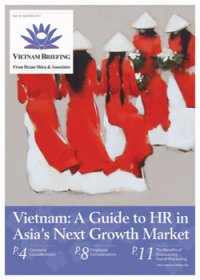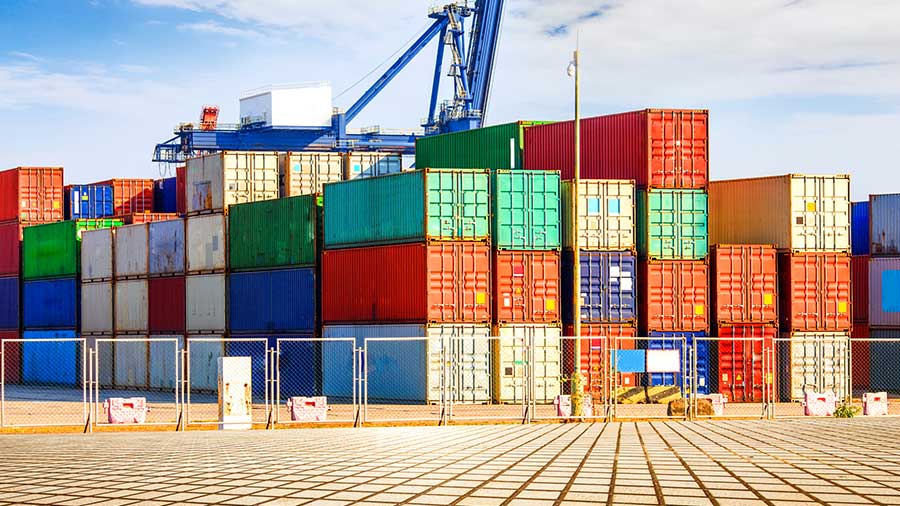Samsung Increases Investment into Vietnam’s Saigon Hi-Tech Park
HCMC – Samsung has recently received an investment certificate allowing the company to move forward with the development of a new US$1.4 billion electronics factory in Ho Chi Minh City (HCMC). The new factory, which will be called the Samsung CE Complex, will be built in the Saigon Hi-Tech Park. This is yet another move by the South Korean company to turn Vietnam into a global manufacturing base for its products.
 RELATED: Dezan Shira & Associates’ Pre-Investment, Market Entry Strategy Advisory Services
RELATED: Dezan Shira & Associates’ Pre-Investment, Market Entry Strategy Advisory Services
Construction will begin in early 2015 and operations are scheduled to start in the first quarter of 2016. According to Samsung, “The complex will be used for addressing mid- to long-term demand for consumer electronics globally, including emerging markets.”
The development will be divided into two phases, the first will focus on the production of consumer electronics, such as TVs and LEDs. The second phase will expand production activities to include other consumer electronics products. Research and development activities will also be carried out at the new complex.
The Samsung CE Complex increases Samsung’s total investment into Vietnam up to US$10 billion. The company now has manufacturing bases located in the northern provinces of Bac Ninh and Thai Nguyen, as well as HCMC.
Due to its ongoing expansion activities, Samsung is Vietnam’s largest exporter and has helped the country achieve a trade surplus for the first time in many years. To give an example of the size of the company’s investment into the country, in 2013, Samsung SEV Bac Ninh earned over US$20 billion in export turnover, this accounted for 18 percent of Vietnam’s total export turnover. Exports of smartphones and computer parts now account for more in export earnings than oil and garments.
In a statement issued by Samsung, the company expressed its optimism about the success of its new project and of the potential of Vietnam: “Receiving the investment certificate for the Samsung CE Complex is a new milestone on Samsung’s Vietnam journey. This is a remarkable country that is now on the global map of manufacturing and particularly the supply of electronics and mobiles.”
Samsung is not the only technology company to move some of its operations to Vietnam in order to take advantage of the low labor costs and eager workers, other global brands include LG Electronics, Nokia, and Intel.
While the influx of high-technology companies has been a boon for the Vietnamese economy, local supporting industries have as of yet been unable to win many supply contracts. This is due primarily to the fact that the local suppliers are not able to produce products with a low enough cost that it makes them feasible to add to the global firms’ supply chains. There have also been some problems with the quality of products produced, which have failed to meet the exacting standards of firms like Samsung.
RELATED: IT Parks in Vietnam: Present and Future
Saigon Hi-Tech Park Snapshot
In recent years, the Saigon Hi-Tech Park has become an increasingly attractive location for businesses to set up their operations. In the first half of this year, the park created a production value of US$1,188 million. Of this value, US$1,183 million was made up of exported products.
In perhaps a nod to Samsung’s recent investment, recently, twenty hectares of land in the park have been earmarked for Japanese companies engaged in supporting industries linked to research and development activities.
The HCMC government is keen to improve business competitiveness throughout the parks in the region. Measures currently being undertaken to improve the business environment include faster tax filing and payment procedures. Additionally, the government is seeking to clarify the regulations surrounding the temporary export and import of IT and electronics products that have been sent overseas for after-sale maintenance services.
HCMC is the key economic center of Vietnam and contributes about 20 percent of Vietnam’s GDP, 30 percent of its industrial production, and 30 percent of the state budget revenue.
Vietnam now has seven IT development zones: Saigon Hi-Tech Park, Saigon Software Park, Quang Trung Software Park, Hanoi IT Trading Center, Da Nang ICT Infrastructure Development Center, National University of Ho Chi Minh City’s IT Park and Can Tho University Software Center.
Asia Briefing Ltd. is a subsidiary of Dezan Shira & Associates. Dezan Shira is a specialist foreign direct investment practice, providing corporate establishment, business advisory, tax advisory and compliance, accounting, payroll, due diligence and financial review services to multinationals investing in China, Hong Kong, India, Vietnam, Singapore and the rest of ASEAN. For further information, please email vietnam@dezshira.com or visit www.dezshira.com.
Stay up to date with the latest business and investment trends in Asia by subscribing to our complimentary update service featuring news, commentary and regulatory insight.
Related Reading
 Vietnam: A Guide to HR in Asia’s Next Growth Market
Vietnam: A Guide to HR in Asia’s Next Growth Market
In this issue of Vietnam Briefing, we attempt to clarify human resources (HR) and payroll processes in Vietnam. We first take you through the current trends affecting the HR landscape and then we delve into the process of hiring and paying your employees. We next look at what specific obligations an employer has to their employees. Additionally, we guide you through the often complex system of visas, work permits, and temporary residence cards. Finally, we highlight the benefits of outsourcing your payroll to a “pan-Asia” vendor.
 Tax, Accounting, and Audit in Vietnam 2014-2015
Tax, Accounting, and Audit in Vietnam 2014-2015
The first edition of Tax, Accounting, and Audit in Vietnam, published in 2014, offers a comprehensive overview of the major taxes foreign investors are likely to encounter when establishing or operating a business in Vietnam, as well as other tax-relevant obligations. This concise, detailed, yet pragmatic guide is ideal for CFOs, compliance officers and heads of accounting who need to be able to navigate the complex tax and accounting landscape in Vietnam in order to effectively manage and strategically plan their Vietnam operations.
 An Introduction to Doing Business in Vietnam 2014 (Second Edition)
An Introduction to Doing Business in Vietnam 2014 (Second Edition)
An Introduction to Doing Business in Vietnam 2014 (Second Edition) provides readers with an overview of the fundamentals of investing and conducting business in Vietnam. Compiled by Dezan Shira & Associates, a specialist foreign direct investment practice, this guide explains the basics of company establishment, annual compliance, taxation, human resources, payroll, and social insurance in the country.
- Previous Article Vietnam Likely to Relax Foreign Equity Limits for Market Status Upgrade
- Next Article Forbes to Honor the 50 Best Listed Vietnamese Companies
































